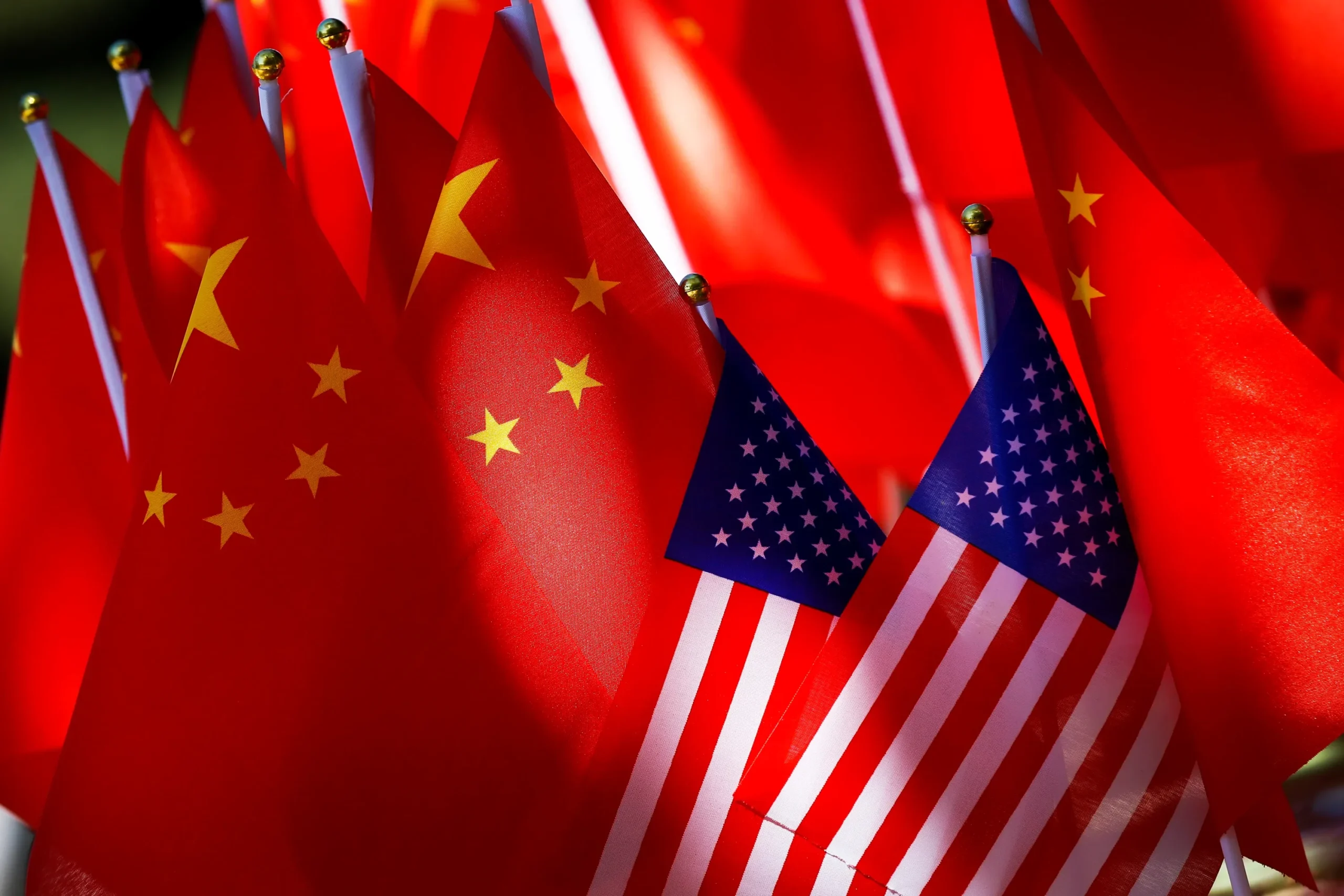China is increasing its investment in creating its own technology to replace Western-made products, as the United States tightens restrictions on exporting advanced technology to China. This information comes from government contracts, research documents, and insights from four individuals with knowledge of the situation.
For the first time, Reuters is revealing details of government, military, and state-affiliated entity contracts, which show a significant uptick in China’s efforts to use domestic alternatives since last year.
China has been investing heavily in replacing foreign-made computer equipment. The telecommunications and financial sectors are likely to be the next focus areas for this effort, according to sources familiar with these industries. State-sponsored researchers have also pointed out that digital payment systems are vulnerable to potential hacking from the West, making it more probable that China will develop its own technology in this area.
The number of contracts from state-owned enterprises, government agencies, and the military for domestic equipment has doubled, going from 119 to 235 in the 12 months following September 2022, as reported by a finance ministry database.
During the same time frame, the total value of projects awarded and listed in the database reached 156.9 million yuan, more than three times what it was the previous year.
It’s important to note that this database only represents a portion of the tender bids across the country, but it is the most extensive collection of publicly accessible state tenders and aligns with data from independent sources. In 2022, China invested 1.4 trillion yuan (equivalent to $191 billion) in replacing foreign-made hardware and software, which was a 16.2% increase from the previous year, according to IT research firm First New Voice.
However, Beijing faces a challenge due to its limited capabilities in advanced chip manufacturing. This limitation means they can’t completely replace foreign products with locally-made alternatives, according to analysts.
Past efforts to substitute foreign products with domestic alternatives were unsuccessful because China lacked the technical expertise to achieve full localization until recently, and to some extent, they still face challenges in this regard, as noted by Kendra Schaefer, who heads tech policy research at the Beijing-based consultancy Trivium China.
Fear about relying on others
Last year, state-owned enterprises (SOEs) were given a new directive to switch from using foreign office software systems to domestic ones by the year 2027. This is the first time such specific deadlines have been set, as per information from five brokerage firms referring to an order from China’s state asset regulator in September 2022. It’s important to note that Reuters couldn’t independently confirm this order.
This year, the projects aimed at replacing foreign technology have focused on critical infrastructure, as indicated by the tender documents.
One of these tenders, which was partially redacted, involved a “certain government department in Gansu province” allocating 4.4 million yuan to replace equipment for an intelligence-gathering system, although the details were not disclosed.
In December of last year, units of the People’s Liberation Army in the northeastern city of Harbin and the southern city of Xiamen issued tenders to replace computers that were originally made by foreign companies.
Technology experts, including Mo Jianlei from the Chinese Academy of Sciences, the country’s largest state-run research institution, mentioned that the Chinese government is growing increasingly concerned about the possibility of Western-made equipment being vulnerable to hacking by foreign countries.
The state asset regulator has not responded to requests for comment.
In the past year, researchers associated with the government have urged Beijing to enhance its cybersecurity measures for financial systems because of concerns related to international relations.
In a research paper from March, they pointed out that China’s UnionPay credit card system relies on software from a U.S. company called BMC for its financial settlements. The researchers cautioned about potential security weaknesses in the hardware and software provided by the U.S. and recommended establishing a strong security barrier for financial protection.
BMC chose not to provide a comment.
In an article published this year in the journal Cyberspace Security, researchers from the state-owned China Telecommunications Corporation stated that China had become too reliant on chips from the U.S. company Qualcomm for managing their back-end operations, as well as on operating systems like iOS and Android.
The researchers noted that all these crucial components were under the control of American companies.
Since China hasn’t agreed to the World Trade Organization regulations related to public purchasing, it seems that their replacement initiative doesn’t breach international agreements, as per the U.S. Treasury. The United States has also put in place comparable regulations that prevent Chinese companies from participating in public sector contracts.
Qualcomm, Google, and Apple have not responded to requests for comments at this time.
Victors AND LOSERS
China’s journey to create its own independent computer system has been ongoing since at least its 2006 five-year plan for science and technology development. This plan highlighted the semiconductor and software industries as essential for the nation’s progress.
This initiative has given rise to state-owned companies that are now securing significant contracts. Among the firms that won the contracts in Harbin, two are subsidiaries of China Electronics Corporation and China Electronics Technology Group Corporation, both of which have been heavily impacted by U.S. sanctions.
In 2022, the state regulator’s directive prompted state-owned enterprises (SOEs) to reduce their reliance on U.S. companies like Microsoft and Adobe. This shift was confirmed by an employee of a Beijing-based company that specializes in domestic office-processing software.
As an example, China Tobacco, in July, started transitioning some of its subsidiaries from using Microsoft Windows to Huawei’s EulerOS, according to an employee of a software vendor that serves this state-owned manufacturer.
The individuals mentioned here preferred to remain anonymous because they weren’t authorized to discuss clients and competitors.
For years, Western technology companies have shared their source code and partnered with Chinese companies to address Beijing’s concerns. However, leading computer scientists like Ni Guangnan from the Chinese Academy of Engineering have argued that these measures aren’t enough to meet China’s security requirements.
China Tobacco, Microsoft, and Adobe have not responded to requests for comments.
Back in September, Reuters and other news sources reported that some employees in central government agencies were not allowed to use iPhones for work.
The European Union Chamber of Commerce in Beijing stated that in certain industries, customers are choosing local suppliers, and foreign suppliers often encounter informal obstacles.
According to a report by the American Chamber of Commerce (AmCham) in Shanghai in 2023, 89% of its tech business members identified procurement practices favoring domestic competitors as a regulatory challenge. This percentage was the highest among all sectors.
AmCham Shanghai President Eric Zheng recognizes China’s worries about national security. However, he expressed a hope that “standard purchasing processes won’t become political so that U.S. companies can compete fairly and explore business opportunities that can be beneficial for both nations.”
Requests for comments from the U.S. Department of Commerce, China Electronics Corporation, and China Electronics Technology Group Corporation went unanswered.
Highly valued Huawei
The Chinese technology giant Huawei has become the leading company in this replacement wave, as confirmed by three individuals with knowledge of China’s enterprise technology sector who wished to remain anonymous due to the sensitive nature of the topic.
In 2022, Huawei’s enterprise division, which includes software and cloud computing services, reported sales of 133 billion yuan, marking a 30% increase from the previous year.
One of these sources mentioned that Huawei, as a privately-owned company, is considered more agile than state-owned groups when it comes to introducing new products and carrying out projects.
The other two insiders pointed out that Huawei’s extensive range of products, covering everything from chips to software, gives it a competitive edge.
Clients also appreciate Huawei for its capacity to process data on their in-house servers and external cloud networks. Moreover, Huawei offers a wide array of cybersecurity products, as reported by an employee of a tech supplier working with China Tobacco.
Huawei declined to provide a comment.
The effort to replace foreign technology has significantly transformed certain parts of the software industry. According to IDC, the collective market share of five major foreign companies specializing in database management systems, most of which are American, plummeted from 57.3% in 2018 to 27.3% by the end of 2022 in the Chinese market.
Despite substantial investments in using domestic alternatives, foreign companies still dominate the supply of database management systems for the banking and telecom sectors. At the close of 2022, non-Chinese companies continued to control 90% of the market share for banking database systems, as reported by the tech consultancy EqualOcean.
One of our sources in the industry mentioned that financial institutions are generally hesitant to switch their database systems despite government pressure. This is because they have higher requirements for stability compared to many other sectors, and local providers have not yet reached the level of quality they demand.
Even if banks transition from international computer brands to China’s prominent supplier, Lenovo, they would still rely on essential chip components provided by Western companies, as highlighted by one of our industry sources.





